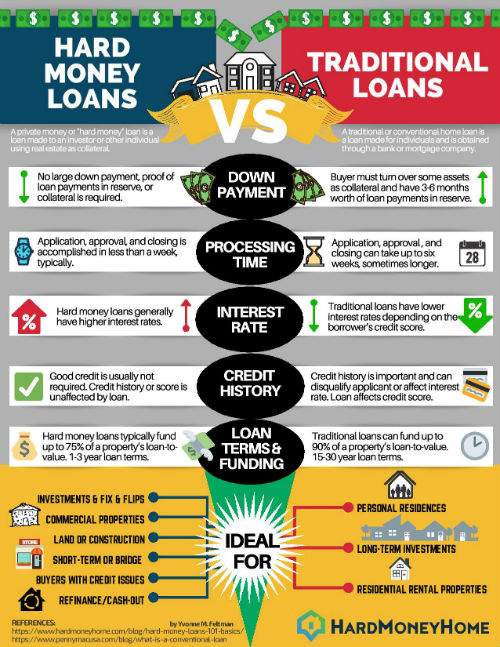Understanding the Hard Money Loan Process
What do you mean by a hard money loan?
A hard money loan is a type of short-term financing that is secured by real estate. These loans are typically funded by private investors or companies, rather than traditional banks or credit unions. Hard money loans are often used by real estate investors who need quick access to capital for purchasing or renovating properties.
How does the hard money loan process work?
The hard money loan process is relatively straightforward compared to traditional mortgage lending. The first step is to find a hard money lender who is willing to fund your loan. Once you have found a lender, you will need to submit an application and provide documentation such as property details, financial information, and a plan for how you will use the loan funds.
After reviewing your application, the lender will determine the loan amount, interest rate, and terms of the loan. If your application is approved, you will typically receive the funds within a few days to a few weeks, depending on the lender’s process.
What is known about hard money loans?

Image Source: hardmoneyhome.com
Hard money loans are known for their quick approval process and flexibility in terms of credit score requirements. Because hard money lenders are primarily interested in the value of the property being used as collateral, borrowers with poor credit or a limited credit history may still be able to qualify for a hard money loan.
However, it’s important to note that hard money loans come with higher interest rates and fees compared to traditional mortgage loans. Borrowers should carefully consider the cost of borrowing before deciding to pursue a hard money loan.
What is the solution for borrowers seeking a hard money loan?
For borrowers seeking a hard money loan, the key is to research and compare multiple lenders to find the best terms and rates for their specific situation. It’s also important to have a clear plan for how the loan funds will be used and to be prepared to provide documentation to support your application.

Image Source: hardmoneylenders.io
Working with a reputable hard money lender who has experience in the real estate market can also help borrowers navigate the loan process and ensure a successful outcome.
Information about the hard money loan process
When applying for a hard money loan, borrowers should be prepared to provide the following information:
Property details, including the address, purchase price, and estimated value
Financial information, such as income, assets, and liabilities
A plan for how the loan funds will be used
Documentation to support the application, such as tax returns, bank statements, and credit reports
It’s also important to have a clear understanding of the terms of the loan, including the interest rate, repayment schedule, and any fees associated with the loan. Borrowers should carefully review the loan agreement before signing to ensure they are comfortable with the terms and conditions.
Conclusion
In conclusion, the hard money loan process offers a quick and flexible financing option for real estate investors in need of capital. By understanding the steps involved in applying for a hard money loan and working with a reputable lender, borrowers can navigate the process successfully and secure the funding they need for their real estate projects.
FAQs
1. How long does it take to get approved for a hard money loan?
The approval process for a hard money loan can vary depending on the lender, but borrowers can typically expect to receive a decision within a few days to a few weeks.
2. Can I get a hard money loan with bad credit?
Yes, hard money lenders are primarily interested in the value of the property being used as collateral, so borrowers with poor credit may still be able to qualify for a hard money loan.
3. What are the typical interest rates for hard money loans?
Interest rates for hard money loans can vary depending on the lender and the borrower’s specific situation, but they are generally higher than traditional mortgage rates due to the short-term nature of the loans.
4. Are there any upfront fees associated with hard money loans?
Yes, hard money loans typically come with upfront fees such as loan origination fees, appraisal fees, and closing costs. Borrowers should carefully review the terms of the loan agreement to understand all fees associated with the loan.
5. What happens if I default on a hard money loan?
If a borrower defaults on a hard money loan, the lender may foreclose on the property used as collateral to recoup their investment. Borrowers should carefully consider the risks of defaulting on a hard money loan before applying for one.
hard money loan process
